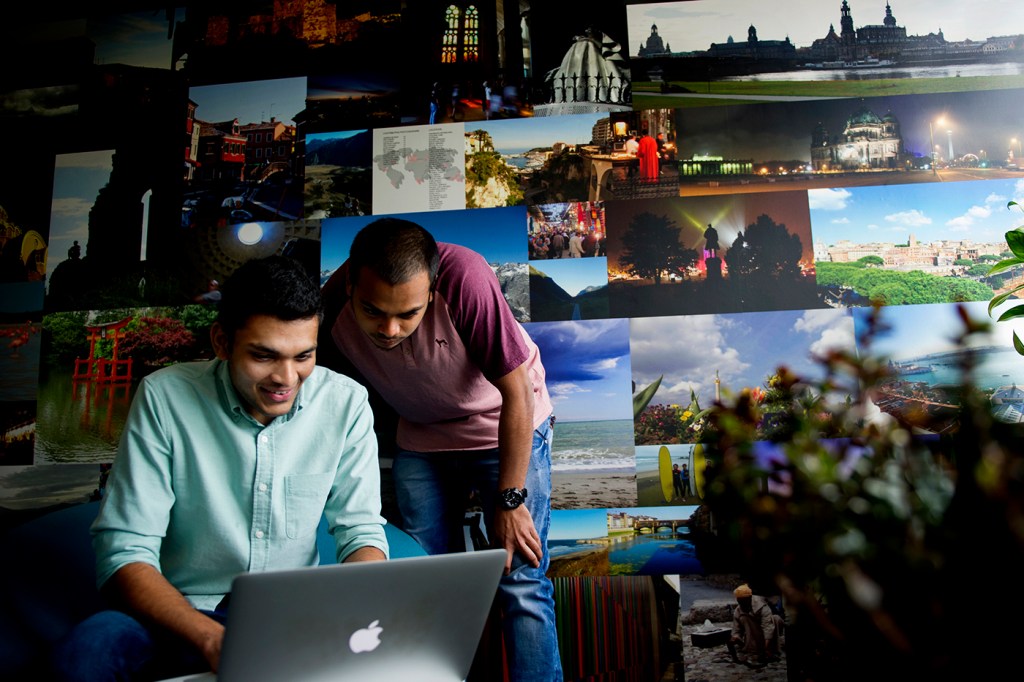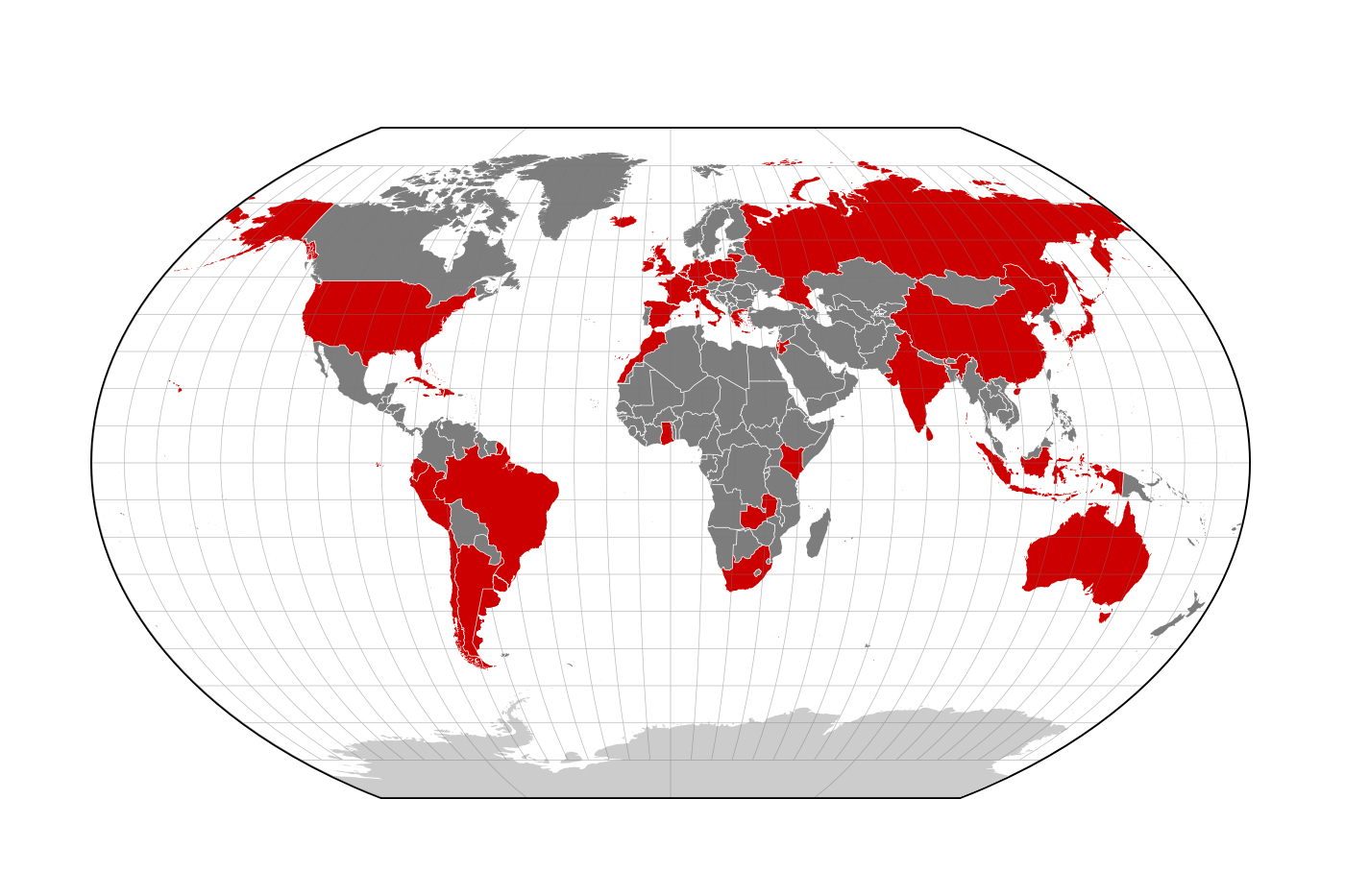How to develop a successful Dialogue of Civilizations program

It’s not uncommon for Lori Gardinier to spend more than a year preparing to lead a monthlong Dialogue of Civilizations program. In fact, it’s the norm for the director of the human services program, who’s been running dialogues to countries like Mexico, Costa Rica, and Nicaragua for over a decade.
Gardinier is currently in Zambia, overseeing a dozen students on a service learning-based dialogue in which they will work to create and implement capacity-building initiatives at five local nongovernmental organizations.
Her preparation ran the gamut, from planning lectures and connecting with NGOs to arranging housing and conducting pre-trip site visits. Much of the legwork was done over email and Skype with the help of one of her former students, who served as her teaching assistant on a dialogue to Mexico before embarking on a career in public health in Zambia.
Gardinier faced many challenges along the way, not the least of which, she said, was adapting to Zambia’s slow pace of day-to-day life at a time when she had to make plans for the weeks and months ahead. But the payoff, for both the teacher and her pupils, has been well worth the effort.
I am opening students’ eyes to something they could never see in America. For many of them, this is the best summer of their lives.
Peter Furth
professor of civil and environmental engineering
“Running a dialogue gives me the opportunity to develop the kind of rapport with students that’s impossible in the classroom,” Gardinier said in a Skype interview from London, where she was overseeing the final days of another dialogue in which students worked at a nonprofit or social service organization for 20 hours per week. “When students go abroad,” she explained, “they’re pushed out of their comfort zones and their capacity to learn from their experiences is so much more intensified.”
Gardinier is one of more than 70 faculty members running dialogue programs to over 30 countries this summer, from Greece, Poland, and the Czech Republic to Israel, Kenya, and South Korea. Others, like Peter Furth, professor of civil and environmental engineering, and Frances McSherry, teaching professor in the theatre department, echoed her sentiments, saying the work they put into preparing for a dialogue pales in comparison to what the students gain from the global experience.
Yet the process to create a dialogue is pretty labor intensive, from submitting an online proposal through the Global Experience Office between May 1 and Aug. 15 to completing two training sessions—one on health and safety, the other on finance and logistics. Once a faculty member’s program has been approved, he or she is free to promote it at the Dialogue of Civilizations fairs, which are typically held in October and January of each academic year. Student enrollment runs from Oct. 15 to Nov.15, provided professors have met their enrollment requirements. If not, enrollment remains open until Feb. 1.
Furth, one of the foremost veterans of the dialogue program, is now in the Netherlands, overseeing more than two-dozen students as they work to develop their understanding of Dutch bikeway design. The dialogue, during which students will cycle approximately 400 miles over 35 days, marks Furth’s 10th program to the European country, where bicycles outnumber residents and road fatalities are shockingly low.

More than 70 faculty members are running dialogue programs to over 30 countries this summer, from Greece, Poland, and the Czech Republic to Israel, Kenya, and South Korea. This map highlights every single location in red. Graphic by Kevin Deane.
“I am opening students’ eyes to something they could never see in America,” said Furth, who noted that many of the students who have taken part in his dialogue to the Netherlands have gone on to have successful careers in sustainable transportation. “For many of them, this is the best summer of their lives.”
Furth’s familiarity with the Netherlands’ top-of-the-line public transportation system dates back to his initial trip to Amsterdam in the early 1990s, but he first took students to the so-called bike capital of the world in 2008. This summer, his students will visit sites within Delft, the Hague, and several other communities to study their transportation planning, including exploring their public transportation system and regional bike highways. “From living there I knew the country had great bike facilities,” said Furth, who’s been studying Dutch bicycle infrastructure for more than 20 years. “So I just started reaching out to the municipalities, asking if they could give talks about transportation policy and planning.”
McSherry, for her part, is in the midst of running her third fashion culture and commerce-based dialogue in France. “I feel like a pro,” she joked.
Her preparation began last summer in Paris, when she found a new onsite study abroad provider to take the most mundane tasks off her plate. No longer would she have to worry about purchasing Metro passes or ordering tickets to live shows. In the fall, she drummed up curiosity in the program, reaching out to individual students and campus groups in an effort to pique their interest in living and studying in the fashion capital of the world. Once she had finalized the student roster, she set up meetings in which the participants had the opportunity to get to know each other better. “It’s pretty much a yearlong process, said McSherry, a professional costume designer who has worked in theatres across the country. “There’s something to do every single week.”
Over the next few weeks, she will oversee 20 students as they work to improve their understanding of the fashion industry through museum visits, walking tours, and a pair of classes in fashion marketing and merchandising. For McSherry, the hope is that the students will immerse themselves in Parisian culture, becoming one with this cosmopolitan city. “I want them to live in the city not as Northeastern students but as Parisians,” she explained, noting that some of the students who have taken part in her dialogue to Paris have looked into potential careers in the fashion industry. “I want them to embed themselves within the community, to blend in with the culture, and be present in this really amazing city.”





